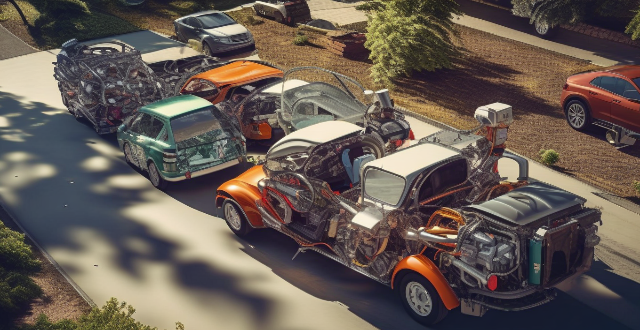Hybrid cars, which combine a conventional internal combustion engine with an electric motor, are known for their fuel efficiency and environmental benefits. The text discusses the lifespan of hybrid cars, battery life, maintenance, driving habits, usage, factors affecting hybrid car lifespan, tips for maximizing your hybrid car's lifespan, and concludes that many hybrid vehicles can last between 100,000 to 200,000 miles or more when properly maintained.

How Long Do Hybrid Cars Typically Last?
Hybrid cars, which combine a conventional internal combustion engine with an electric motor, are known for their fuel efficiency and environmental benefits. But how long do these vehicles typically last? Let's explore this question in detail.
Key Points
- Lifespan of Hybrid Cars: The lifespan of hybrid cars depends on various factors such as maintenance, driving habits, and usage. However, many hybrid vehicles can last between 100,000 to 200,000 miles or more when properly maintained.
- Battery Life: One of the most critical components of a hybrid car is its battery. Most hybrid batteries are designed to last for around 100,000 miles before they need replacement. Some may even last up to 200,000 miles or more.
- Maintenance: Regular maintenance is crucial for extending the lifespan of a hybrid car. This includes timely oil changes, tire rotations, brake inspections, and other routine services.
- Driving Habits: Driving habits play a significant role in determining the longevity of a hybrid vehicle. Aggressive acceleration, hard braking, and frequent short trips can put additional strain on the battery and reduce its overall lifespan.
- Usage: The way you use your hybrid car also affects its lifespan. For example, if you primarily use it for highway driving, your hybrid battery may last longer than if you frequently drive in stop-and-go city traffic.
Factors Affecting Hybrid Car Lifespan
The lifespan of a hybrid car can be influenced by several factors, including:
- Battery Health: As mentioned earlier, the health of the hybrid battery is essential. Replacing a worn-out battery can extend the lifespan of your vehicle but comes at a cost.
- Maintenance Schedule: Following the manufacturer's recommended maintenance schedule helps ensure that all critical components are functioning correctly and reduces the risk of unexpected breakdowns.
- Driving Conditions: Harsh driving conditions, such as extreme temperatures or rough roads, can accelerate wear and tear on your hybrid car's components.
- Quality of Repairs: Using certified mechanics and genuine parts for repairs can help maintain the integrity of your hybrid vehicle and prevent issues down the line.
Tips for Maximizing Your Hybrid Car's Lifespan
To get the most out of your hybrid car, consider these tips:
- Regular Maintenance: Stick to the maintenance schedule outlined in your owner's manual to keep your hybrid running smoothly.
- Drive Gently: Avoid aggressive driving habits like rapid acceleration and hard braking to reduce stress on your vehicle's components.
- Avoid Short Trips: If possible, combine errands into longer trips to give your hybrid battery a chance to recharge fully between uses.
- Store Properly: During extended periods of non-use, store your hybrid car in a cool, dry place to minimize battery degradation.
- Use High-Quality Parts: When replacing components or repairing your hybrid car, opt for high-quality parts to ensure optimal performance and longevity.
In conclusion, while the lifespan of hybrid cars varies based on several factors, many can last well beyond 100,000 miles with proper care and maintenance. By following best practices for maintaining your hybrid vehicle and adopting good driving habits, you can help ensure that your car serves you well for years to come.